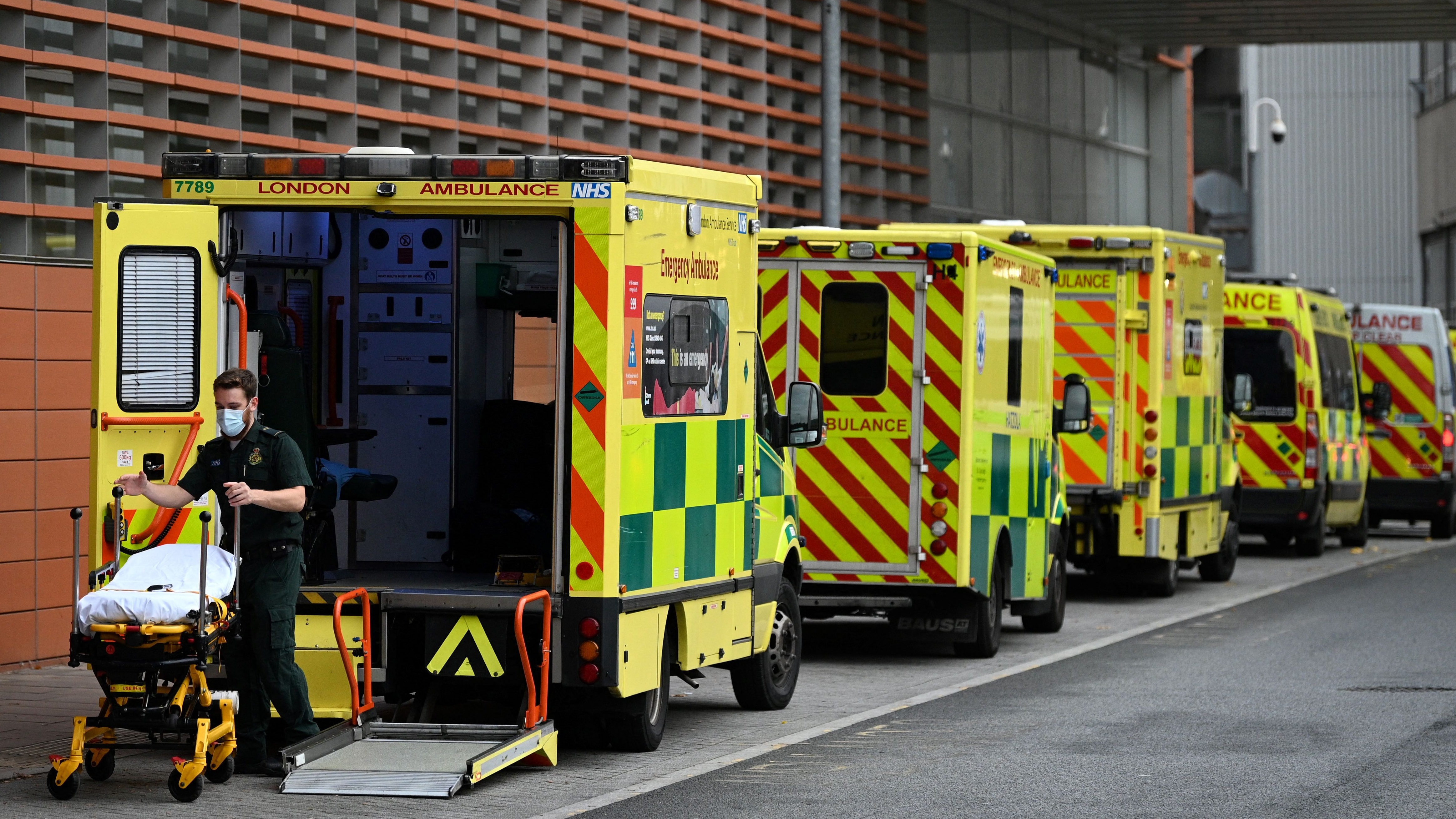The NHS trusts under most pressure amid staff shortages and rising Covid cases
Health bosses have already been forced to cancel non-urgent operations in some hospitals

A free daily email with the biggest news stories of the day – and the best features from TheWeek.com
You are now subscribed
Your newsletter sign-up was successful
At least 24 NHS trusts across England have declared critical incidents due to staff shortages and rising Covid admissions as a government minister admitted the NHS was coming under “very real pressures”.
Transport Secretary Grant Shapps defended the government’s decision not to go further than Plan B restrictions for England despite the difficulties being faced by the NHS and suggested new rules were not needed to improve the situation.
Shapps told Sky News that ministers were trying to find the “right compromise” between imposing further restrictions and not allowing hospitals to be “overrun” as new cases of the virus reach record levels.
The Week
Escape your echo chamber. Get the facts behind the news, plus analysis from multiple perspectives.

Sign up for The Week's Free Newsletters
From our morning news briefing to a weekly Good News Newsletter, get the best of The Week delivered directly to your inbox.
From our morning news briefing to a weekly Good News Newsletter, get the best of The Week delivered directly to your inbox.
But he added that it was “not entirely unusual” for NHS trusts to “go critical over the winter – often with things like the flu pandemic”, even as he conceded that “there are very real pressures which I absolutely recognise”.
Of England’s 137 NHS trusts, at least 24 have declared a critical incident, reported the Daily Mail. Officials have not released a full list of affected NHS trusts, but a dozen have made their own criticial incident public.
Health bosses have already been forced to cancel non-urgent operations across hospitals in Greater Manchester, the BBC reported, while in the Northeast, heart attack victims were asked to make their own way to hospital after patients were waiting “on average for an hour” to be seen.
The NHS trusts that have publicly announced critical incidents, according to the Mail, include:
A free daily email with the biggest news stories of the day – and the best features from TheWeek.com
- Gloucestershire Hospitals NHS Foundation Trust
- United Lincolnshire Hospitals NHS Trust
- University Hospitals of Morecambe Bay NHS Foundation Trust
- Blackpool Teaching Hospitals NHS Foundation Trust
- University Hospitals Plymouth NHS Trust
- Great Western Hospitals NHS Foundation Trust
- Norfolk and Waveney CCG
- North East Ambulance Service NHS Foundation Trust
- University Hospitals Bristol, Weston & North Bristol NHS Foundation Trust
- Dorset County Hospital NHS Foundation Trust
- Royal United Hospitals Bath NHS Foundation Trust
- West Suffolk NHS Foundation Trust
Greater Manchester NHS Trust has said it is close to critical.
What is a critical incident?
A critical incident is something that can be declared by an NHS trust when “facing extraordinary pressure”, explained The Independent, and signals to hospital staff and patients that the hospital “will not be able to function as usual”.
Critical incidents are usually declared in the wake of large numbers of staff being absent or a very high number of patients, but technical failures – such as IT systems crashing – can also lead to critical incidents being declared.
In the latest wave of the pandemic, hospitalisations have been slower to rise than Covid cases, “with ministers buoyed by the booster rollout”, said The Guardian.
But hospitalisations are rising. A further 2,258 people were admitted to hospital with the virus, according to the latest government figures published on Wednesday, taking the total to 17,276, the highest number since last February. The rapidly increasing number of cases has, in turn, meant that NHS staff are among the hundreds of thousands self-isolating.
On Wednesday, a further 194,747 infections were reported, one of the highest daily totals since the pandemic began.
-
 ‘Restaurateurs have become millionaires’
‘Restaurateurs have become millionaires’Instant Opinion Opinion, comment and editorials of the day
-
 Earth is rapidly approaching a ‘hothouse’ trajectory of warming
Earth is rapidly approaching a ‘hothouse’ trajectory of warmingThe explainer It may become impossible to fix
-
 Health insurance: Premiums soar as ACA subsidies end
Health insurance: Premiums soar as ACA subsidies endFeature 1.4 million people have dropped coverage
-
 A Nipah virus outbreak in India has brought back Covid-era surveillance
A Nipah virus outbreak in India has brought back Covid-era surveillanceUnder the radar The disease can spread through animals and humans
-
 A real head scratcher: how scabies returned to the UK
A real head scratcher: how scabies returned to the UKThe Explainer The ‘Victorian-era’ condition is on the rise in the UK, and experts aren’t sure why
-
 How dangerous is the ‘K’ strain super-flu?
How dangerous is the ‘K’ strain super-flu?The Explainer Surge in cases of new variant H3N2 flu in UK and around the world
-
 Covid-19 mRNA vaccines could help fight cancer
Covid-19 mRNA vaccines could help fight cancerUnder the radar They boost the immune system
-
 The ‘menopause gold rush’
The ‘menopause gold rush’Under the Radar Women vulnerable to misinformation and marketing of ‘unregulated’ products
-
 The new Stratus Covid strain – and why it’s on the rise
The new Stratus Covid strain – and why it’s on the riseThe Explainer ‘No evidence’ new variant is more dangerous or that vaccines won’t work against it, say UK health experts
-
 RFK Jr. vaccine panel advises restricting MMRV shot
RFK Jr. vaccine panel advises restricting MMRV shotSpeed Read The committee voted to restrict access to a childhood vaccine against chickenpox
-
 RFK Jr. scraps Covid shots for pregnant women, kids
RFK Jr. scraps Covid shots for pregnant women, kidsSpeed Read The Health Secretary announced a policy change without informing CDC officials